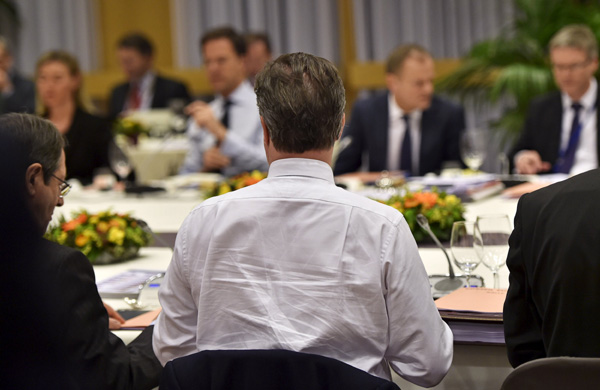EU clinches to keep Britain in bloc with 'special status'
(Agencies) Updated: 2016-02-20 07:52
European Parliament President Martin Schulz, whose assembly will have to pass legislation to implement concessions to Britain on benefit curbs, criticised some countries for trying to link demands on Europe's refugee crisis to the British deal.
He appeared to be referring to Greece, which had said it could block the entire deal unless it got its way on a dispute with Slovenia over border controls to curb the flow of migrants.
East European countries sought to restrict Cameron's welfare cuts to new arrivals rather than the more than 1 million European migrant workers already in the UK. In the end, both sides emerged with something to show for their negotiations.
A compromise that appeared largely favourable to Britain was found for French concerns about differential treatment for London banks outside the euro zone as well as Belgian grumbles about Britain setting a precedent for states to snub EU integration.
The stakes are high for both Britain and the EU, with opinion polls showing voters almost evenly split.
The risks of Cameron's strategy were highlighted on Friday when an opinion poll showed the campaign to leave the bloc had a two-percent lead with 36 percent support. The TNS poll showed 34 percent of British voters wanted to stay in the bloc, 7 percent would not vote and 23 percent were undecided.
Cameron was keen to show British voters he was fighting hard to secure a deal which he has called "the best of both worlds".







